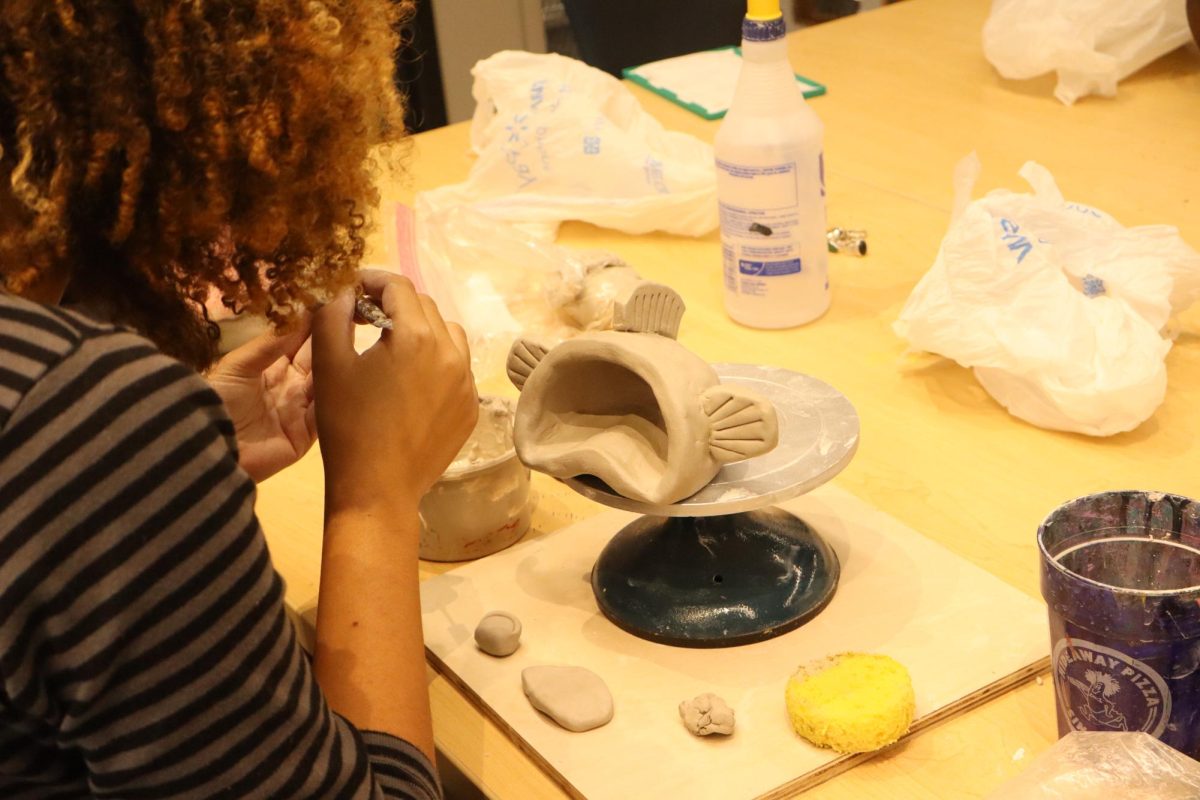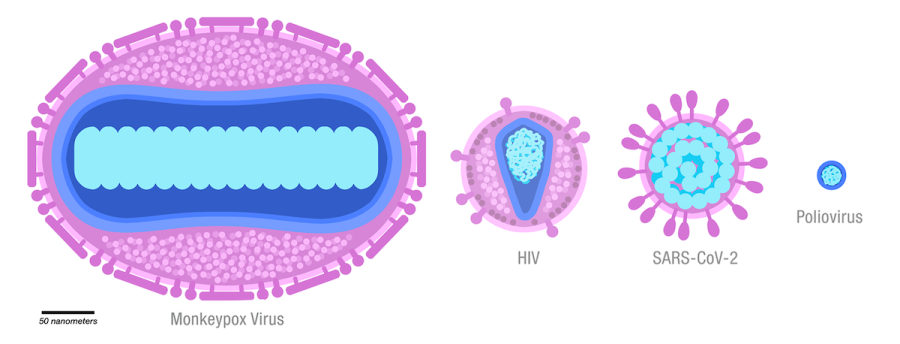What is Monkeypox?
Monkeypox virus scale.
August 24, 2022
There have been a lot of misconceptions going around about what the virus Monkeypox is. This is expected seeing as it’s a fairly new disease in North America, especially due to the misinformation effect that the Corona Virus left on modern-day society.
The first thing to know: Monkeypox is not a new disease. It was actually discovered in 1958 in a few monkeys that had been imported from Singapore to a laboratory in Copenhagen, Denmark. With that being said, the virus has very little to do with monkeys. The first time it was identified in a human was in 1970 when a nine-month-old baby was brought to the hospital in the Democratic Republic of Congo. The child was cured of the disease but did die a few days later from measles.
A common misconception about monkeypox is that it is similar to an STD or that it transfers quicker between homosexual men. There was a study done that suggested 98% of infections in 16 different countries were from men who have sex with other men, but there is no way of telling why that’s the case. The disease has been detected in semen, but that doesn’t necessarily mean a direct cause for transmission.
“Monkeypox can spread through any type of skin-to-skin contact with an infected person including, but not limited to, sexual contact,” the Oklahoma Department of Health (OKDH) said. “At this point, it is not known if the monkeypox virus will spread through semen or vaginal fluids. However, the rash can look similar to symptoms of STIs such as herpes and syphilis. Mouth-to-skin contact can spread monkeypox when blisters are present. Condoms may not prevent the spread of monkeypox.”
Unlike COVID-19, Monkeypox can not be easily spread among people. However, you may feel like you have it if you develop a rash; the rash would look similar to acne or pimples.
“Monkeypox may cause fever and swollen lymph nodes,” OKDH said. “Headache, muscle ache, backache, chills and exhaustion can also be present. A painful rash develops and goes through several stages including fluid and pus-filled blisters that eventually get crusty, scab over and fall off.”
If you think you may have this disease or have been exposed, avoid touching anyone and go to the doctor. Take a test and if the test results are positive, follow your healthcare provider’s recommendations.
Don’t take this article as a warning, but more as the information we know about a fairly new topic. If you’re worried you might get Monkeypox, dont be. The disease is very rare seeing as there has been a total of 17 cases in Oklahoma.
Don’t forget to wash your hands and practice social distancing.





































